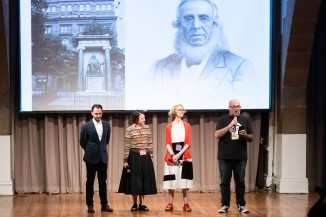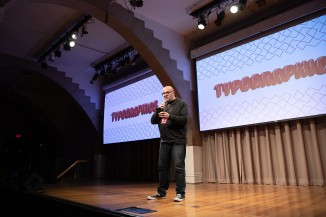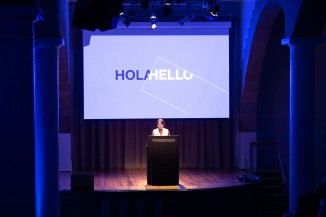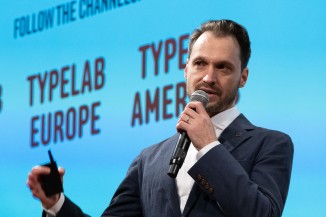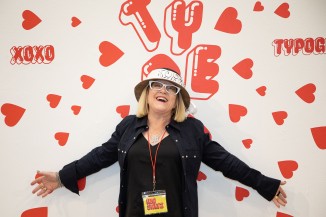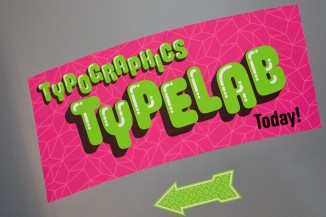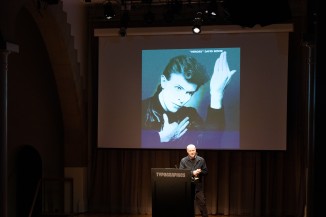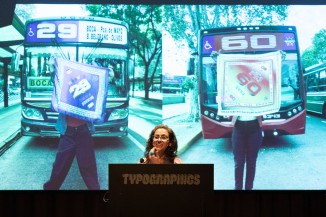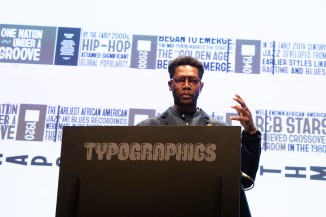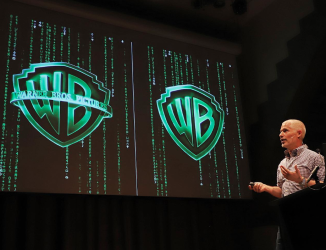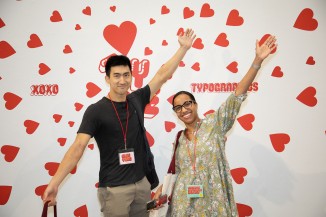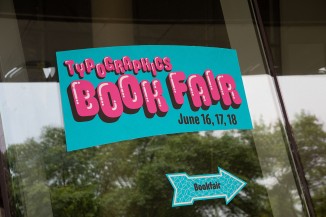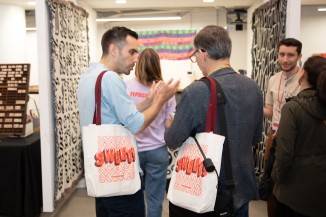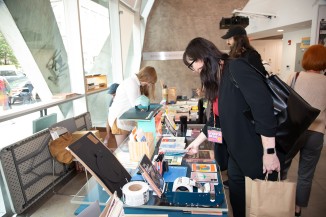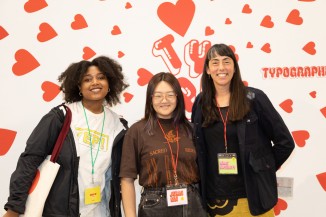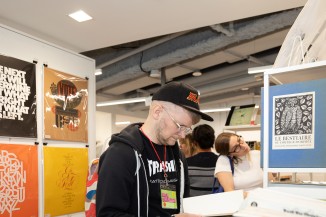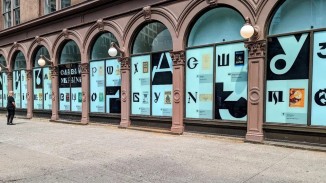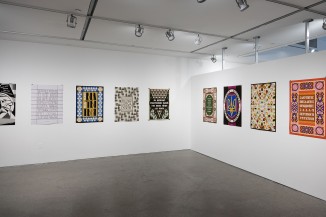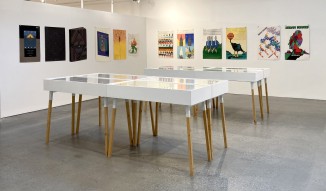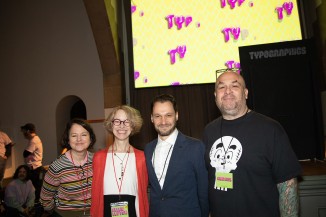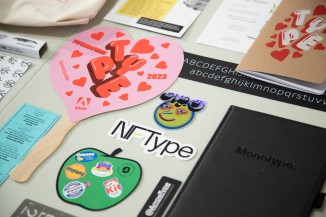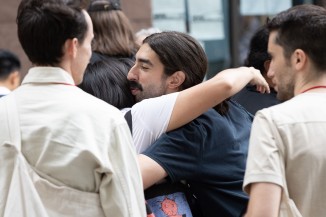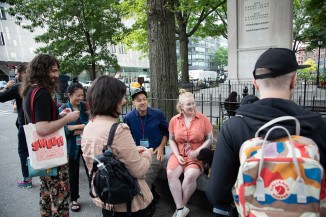Typographics 2023 Photo Gallery
Typographics, the "design festival for people who use type," turned nine earlier this June. More than 800 designers and type aficionados from around the world gathered at The Cooper Union as well as online to immerse themselves in contemporary typography and design. Co-organized by The Herb Lubalin Study Center and Type@Cooper, the 11-day event in and around Cooper's Foundation Building and 41 Cooper Square included workshops covering everything from hand lettering to creative coding, tours, a book fair, TypeLab (in-person and online), and the main conference. This year the Great Hall stage welcomed 20 speakers including Sagi Haviv, a 2003 School of Art alumnus.
As part of the festival, the Lubalin Center mounted three exhibitions that run through July 13, including Ukrainian Letters (temporary) Museum by Kateryna Korolevtseva, featuring 33 letters of the Ukrainian alphabet on view in the Foundation Building's colonnade windows; Літери в місті — Odesa City Letters, an installation of 24 posters by the Odesa City Letters project, a museum devoted to the lettering legacy of Odesa; and ❤️ Milton, an installation of Milton Glaser's better-known work alongside some surprising designs. The latter exhibitions were both on view in 41 Cooper Square Gallery. The following photos are a sample of moments around the festival.
Watch the conference talks for June 16 here and June 17 here.
Photos by Marget Long except where noted*
Typographic curators welcome attendees to The Cooper Union
The Cooper Union School of Art Dean Mike Essl A'96
Ximena Amaya spoke about Typographic Emergencies: Imagining through Letterforms
Alexander Tochilovsky A'00, curator of The Cooper Union Herb Lubalin Study Center of Design and Typography
Ina Saltz A'72 at the Typographics selfie wall
Typelab sign. 2023 conference typefaces are Mayonnaise from Spaghetype, Crackly from Emigre, Anchor from Process Type, and Cupidus from Just Another Foundry
Jonathan Barnbrook presents Designing Bowie
Muk Monsalve presents Two to Tango
David Jon Walker presents A Typographic Evolution
Sagi Haviv A'03. Photo by Henrique Nardi
Attendees at the book fair
Installation image of Ukrainian Letters (temporary) Museum by Kateryna Korolevtseva. Photo by Kim Newman
Літери в місті — Odesa City Letters installation
❤️ Milton installation. Photo by Alexander Tochilovsky A'00
Barbara Glauber, The Fall 2022 Frank Stanton Chair in Graphic Design, Ellen Lupton A'85, Alexander Tochilovsky A'00, curator of The Cooper Union Herb Lubalin Study Center of Design and Typography, and School of Art Dean Mike Essl A'96 host the 2023 Typographics conference
Festival attendees take a break from Typographics 2023 on Cooper Square (like you do)

